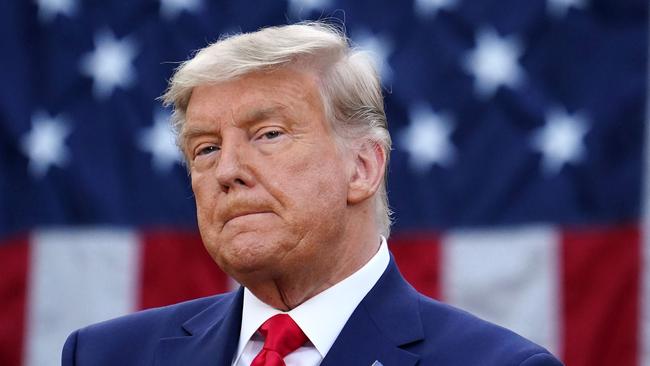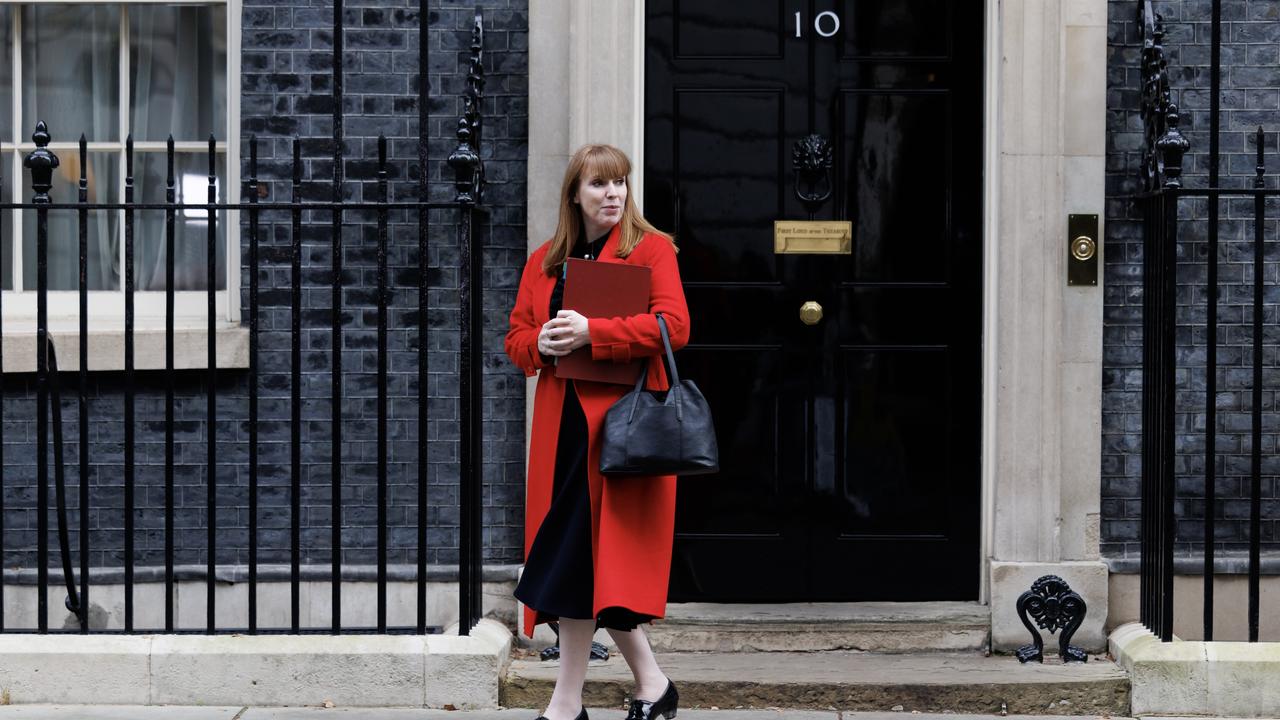US election: Republicans tense about Donald Trump’s policy ‘bucket list’
Republicans are becoming nervous about Donald Trump’s ‘bucket list’ for his final weeks in office.

Senior Republicans are becoming nervous about President Trump’s “bucket list” for his final weeks in office after it emerged that he had reviewed plans to bomb Iran, and ordered a withdrawal yesterday (Tuesday) of US troops in Afghanistan and Iraq.
He is still refusing to concede the election to Joe Biden but there are growing concerns that when he does finally leave the White House, he will try to bow out with a series of grand gestures at home and abroad.
Mr Trump’s ability to act unilaterally is greatest in foreign policy, where Christopher Miller, the acting defence secretary, has announced cuts in US troop numbers from 4,500 to 2,500 in Afghanistan and from 3,000 to 2,500 in Iraq by January 15, which is just five days before the inauguration of Mr Biden as the next president. Mr Miller was appointed last week after the dismissal of Mark Esper, who was opposed to the idea of cutting troops who are fighting terrorism in the two war zones.
Leaked details of the plans drew a strong rebuke from Mitch McConnell, the Senate majority leader, but few other senior Republicans are daring to contradict the president in public. “A rapid withdrawal of US forces from Afghanistan now would hurt our allies and delight the people who wish us harm,” Mr McConnell said on Monday.
Options for a strike on Iran’s main nuclear processing facility were discussed at an Oval Office meeting last Thursday but Mr Trump, 74, was apparently talked out of an attack.
In another move aimed at boxing in the Biden administration’s options on Iran, Mr Trump is poised to designate the Houthi rebel force in Yemen as a terrorist organisation, despite warnings that the move could tip the country into famine, with aid agencies no longer able to operate. Iran has long backed the Houthis against a Saudi-led coalition helping the Yemen government.
Mr Trump asked senior advisers for strike options on attacking Iran’s uranium enrichment facility at Natanz, 190 miles south of Tehran, the centre of its nuclear program, the day after international nuclear inspectors reported a large increase in the country’s stockpile of fissile material. “He asked for options. They gave him the scenarios and he ultimately decided not to go forward,” an official told Reuters news agency. The White House declined to comment.
Senior officials, including Mr Miller, Mike Pence, the vice-president, Mike Pompeo, the secretary of state, and General Mark Milley, chairman of the joint chiefs of staff, cautioned that a strike on Natanz could begin a regional conflict.
It would also complicate Mr Biden’s plans to revive the 2015 nuclear agreement with Iran negotiated by President Obama, which Mr Trump abandoned in 2018. Iran is now closer to being able to produce a nuclear bomb than at any point since the deal was struck.
Fears rose that Mr Trump was contemplating such a strike after his purge of Pentagon leaders in the days after the election. Their replacements are working on withdrawing most of the remaining American troops in the Middle East.
Officials were said to have left the meeting believing that a strike on Iranian nuclear facilities was off the table but that Mr Trump might still choose to attack Iranian assets and allies in Iraq.
He campaigned for re-election on his record of not starting wars, and bringing US troops home. Iran, however, is the foreign policy issue on which he has been most aggressive during his term, in effect abandoning diplomacy and embarking on a “maximum pressure” sanctions campaign.
He authorised the drone strike that killed the Iranian general Qasem Soleimani in Baghdad in January but pulled out of direct reprisal strikes for a series of attacks on shipping in the Gulf last year, blamed on Iranian proxies.
China is prepared for any “final act of madness” by Mr Trump, according to the Global Times, a Communist Party-run newspaper. “The whole world knows the Trump administration will stir troubles in its final weeks. But with the lowest support both from home and abroad, it is the most vulnerable at the moment even if it appears wrong,” it said in an editorial.
Separately, the Trump administration invited bids yesterday (Tuesday) from energy companies hoping to pursue exploration in the Arctic National Wildlife Refuge, which Mr Biden pledged to protect in his program for government.
Building a hawkish legacy
Mr Trump gave few hints on the campaign trail what he might do at home or abroad if he won a second term. Yet even as he refuses to concede defeat, his administration is sketching out ways to force his successor’s hand on foreign policy (Catherine Philp writes).
Mr Trump came to office vowing to rip up President Obama’s nuclear agreement with Iran and will leave knowing that Joe Biden intends to reinstate it. The moves Mr Trump is making now are designed to make it harder to give Iran sanctions relief or revive negotiations.
Since November 3, Mike Pompeo, the secretary of state, has continued to blacklist Iranian entities under the “maximum pressure” sanctions campaign Mr Trump promised would bring Tehran to the table before the election.
Mr Pompeo is due in Riyadh this weekend and then in Jerusalem, where he will discuss the prospect of cementing more bricks into the “sanctions wall” they are attempting to build around Iran in the weeks leading up to Mr Biden’s inauguration on January 20.
Mr Pompeo plans to list Yemen’s Iranian-backed Houthi rebels as a terrorist group, despite warnings it would imperil UN aid keeping millions of Yemenis from the brink of famine. One source called the proposed move “spiteful”. Officials said that Mr Trump left an Oval Office meeting dissuaded from plans for a strike on an Iranian nuclear site after warnings of a wider conflagration. Also discussed, but not ruled out, was military action against Iranian militias in Iraq who have attacked American forces.
Mr Trump’s Pentagon purge rid him of generals who warned against pulling troops out of the Middle East for fear of repeating the 2011 withdrawal that paved the way for the growth of Isis. As well as the troop withdrawals from Afghanistan and Iraq that were announced last night (Tuesday), he also plans to bring home armed forces stationed in Somalia and Syria leaving fewer American targets for Iranian retaliation.
Mr Trump is also expected to enact hardline policies sanctioning or restricting trade with more Chinese bodies and officials to lock in his legacy as a China hawk and make a rapprochement less tenable for Mr Biden.
The Times


